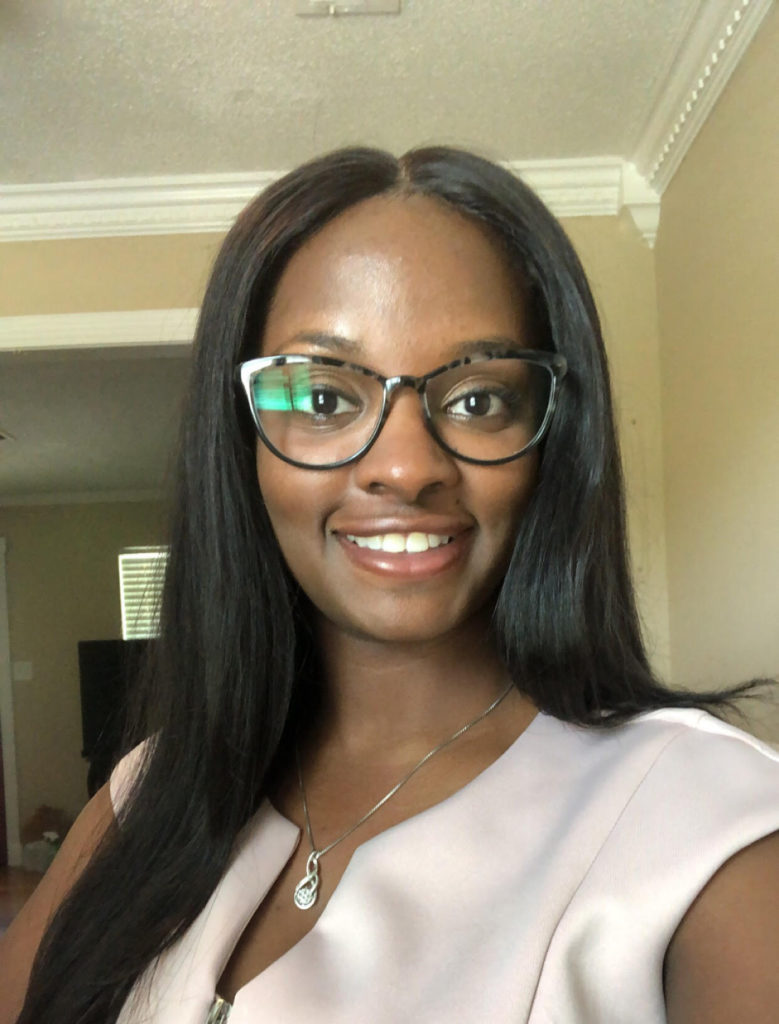Employee Spotlight: Jessica Durrah
6/25/2019
 Patients battling prostate cancer are often faced with difficult decisions and complex management issues. Understanding treatment options, living with side effects, and handling the emotional aspects of chronic illness can get frustrating and confusing for patients. We sat down with Jessica Durrah, UCA Prostate Cancer Nurse Navigator, to discuss what her position means for patients, and why this is her calling.
Patients battling prostate cancer are often faced with difficult decisions and complex management issues. Understanding treatment options, living with side effects, and handling the emotional aspects of chronic illness can get frustrating and confusing for patients. We sat down with Jessica Durrah, UCA Prostate Cancer Nurse Navigator, to discuss what her position means for patients, and why this is her calling.
Q: Tell us a little bit about yourself.
I am originally from Birmingham, Alabama, and I graduated from Bevill State Community College where I received an Associates degree in science. I started my nursing career at UAB, assisting in Thoracic surgery procedures. While at UAB, I started becoming more interested in oncology and was looking for ways to get into that field. By chance, I was driving by the Homewood office and wanted to learn a little bit more about UCA. I was really impressed with the team and expertise, and I felt UCA would complement my skill set well. I joined the team as a Prostate Cancer Nurse Navigator in December 2018.
Q: How did you get interested in the healthcare field?
I’m the first in my family to enter the medical field. I knew nursing was the right path for me as a young girl. My grandfather had Alzheimer’s Disease, and I remember watching my mother care for him. She was so loving, helpful and compassionate to him. She definitely influenced me to show the kind of compassion to others that she showed to my grandfather.
Q: What is a Prostate Cancer Nurse Navigator?
Compassion comes naturally to me. When a patient learns that he has prostate cancer, it’s a pretty big eye opener. I want patients to know that they are not alone and that I am on their team. As a Prostate Cancer Nurse Navigator, I am a patient’s greatest advocate. I’ll keep up with a patient’s information such as appointments, labs, treatments and medications. I want to ensure the patient that he is getting the best care and that I am always here for him. I want to make sure they are progressing and that they can find comfort in my help.
Q: At what point do you start the navigation process?
The navigation process starts at the initial diagnosis. If a patient has an elevated PSA, but hasn’t been diagnosed, I’ll still get involved. The doctor will discuss treatment options, and I’ll follow up to make sure the patient doesn’t have any questions or issues with the treatment. We’ll monitor that patient’s PSA, and if it rises, the next step is to try some additional treatments or take a biopsy.
Q: What is your approach to patient care?
I’m very proactive in my approach to patient care. I want patients to know that I am an assistant to them and that I really want them to progress and feel better. Patients are pleasantly surprised when I call to check in on them. Some feel like they just come in, meet the doctor and go home until something goes wrong, but, that’s not the case at UCA. Just a simple check-in phone call reassures them that UCA honestly cares about their health.
Q: How do you stay up-to-date on urological treatments?
I am fortunate to be surrounded by a team of physicians who are leaders in urology and in the fight against prostate cancer. Their knowledge and expertise are a valuable resource to me when I have questions. Educational webinars are also a great way to keep up to date on the latest treatments and technology. And of course you always have Google, WebMD and the American Urological Association.
Q: What do you like to do in your free time?
I am very involved with my church The CoRe Church (Covenant Restoration Church) where we conduct food drives throughout the year. And when I’m not volunteering there, I’m tending to my awesome garden. I love to garden! I grow pretty much everything you’d find in a salad, such as tomatoes, squash, beets, and corn. I also grow peaches and potatoes. Well, trying to grow peaches. They can be a little stubborn.
